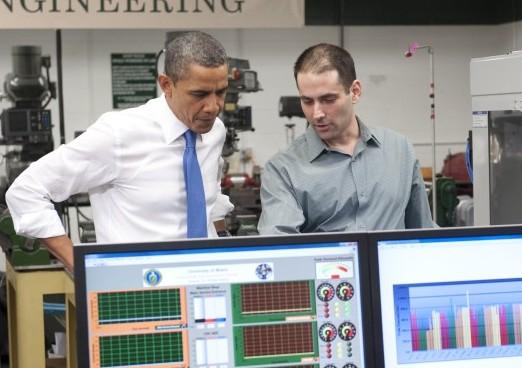House Democrats continued their boycott of Indiana’s 2012 legislative session Thursday after shutting business down Jan. 4, the first day back to work for the Indiana House of Representatives.
The latest walkout is an extension of a five-week boycott by Democrats at the end of the 2011 session. In an effort to stall a controversial “right-to-work” bill and leverage bargaining power through public support, most Democratic members of the House stayed away, preventing the session from starting (two-thirds of representatives must be present).
Republican House Speaker Brian Bosma has reportedly threatened to fine those Democrats who are not attending $1,000 a day, a measure implemented last year in an attempt to end the boycott.
Democratic Leader Patrick Bauer said he was told by Speaker Bosma in a private meeting that the fines would begin on Friday. “It’s a significant issue. We think it’s another assault against free speech,” Bauer said, according to ABC.
Despite disagreeing with the Republican right-to-work proposal, not every Democrat is boycotting. “Last year they were taking my bank account, this year they’re taking my home,” Democratic Rep. David Cheatham of North Vernon said in the ABC report. Cheatham is one of a few who have showed up in disagreement with the stall tactics.
The controversial right-to-work bill would prohibit agreements between labor unions and employers that currently force employees to pay union dues as a condition of employment, even if they do not wish to become union members. Currently 22 states have right-to-work laws.
The Republicans and their supporters in favor of the law argue that not having right-to-work laws actually creates a forced union state, even if the employee does not wish to have the services of the union, or disagrees with certain union ideology. Many argue that not having right-to-work laws are a deterrence for some employers to move into a state, which in turn raises unemployment.
Those opposed to the law argue that unions use collective bargaining to fight for the rights of all workers, which would include non-union members who do not pay dues. Even though they did not pay dues, they would be getting the benefits that the unions provide. According to the AFL-CIO union, right-to-work laws lower wages for everyone, citing that an average worker in a right-to-work state makes about $5,333 less per year than in a non-right-to-work state.
Bosma said that job creation in the state of Indiana is the party’s reason behind the proposal, claiming that “economic development experts tell us that removing the last barriers to job creation in our state will help the quarter of a million unemployed Hoosiers get back to work. That is why my top priority this session is to make Indiana the 23rd right-to-work state in the nation.”
On a video posed on Rep. Bosma’s website, he quotes Larry Gigerich, managing director of Ginovus, an Indiana-based consulting company. “While a state is not always eliminated from consideration if it is not right-to-work, it is a majority of the time when it is a manufacturing and distribution facility project,” Gigerich is quoted. “As a result, Indiana is eliminated from consideration often for these types of projects.”
In a press release in October, House Democratic Leader Bauer said, “Despite ample evidence presented in several hearings that right-to-work does not bring additional jobs to a state, but does lower wages and make workplaces more dangerous, it appears that the party in control of our state government is hell-bent on bringing this ruinous policy to Indiana.”
“If they choose to continue these radical attacks on working Hoosier families, Indiana House Democrats will reserve the right to respond appropriately,” Bauer added.



